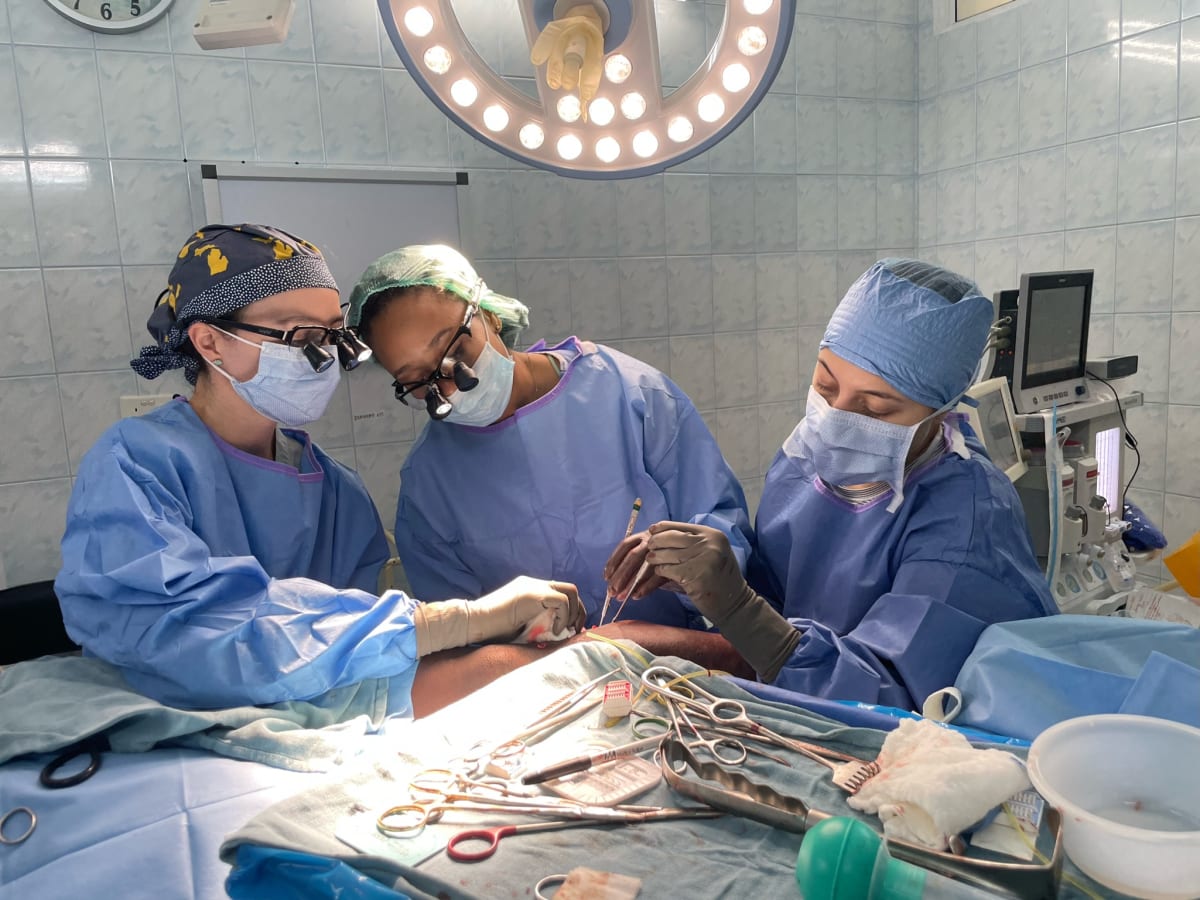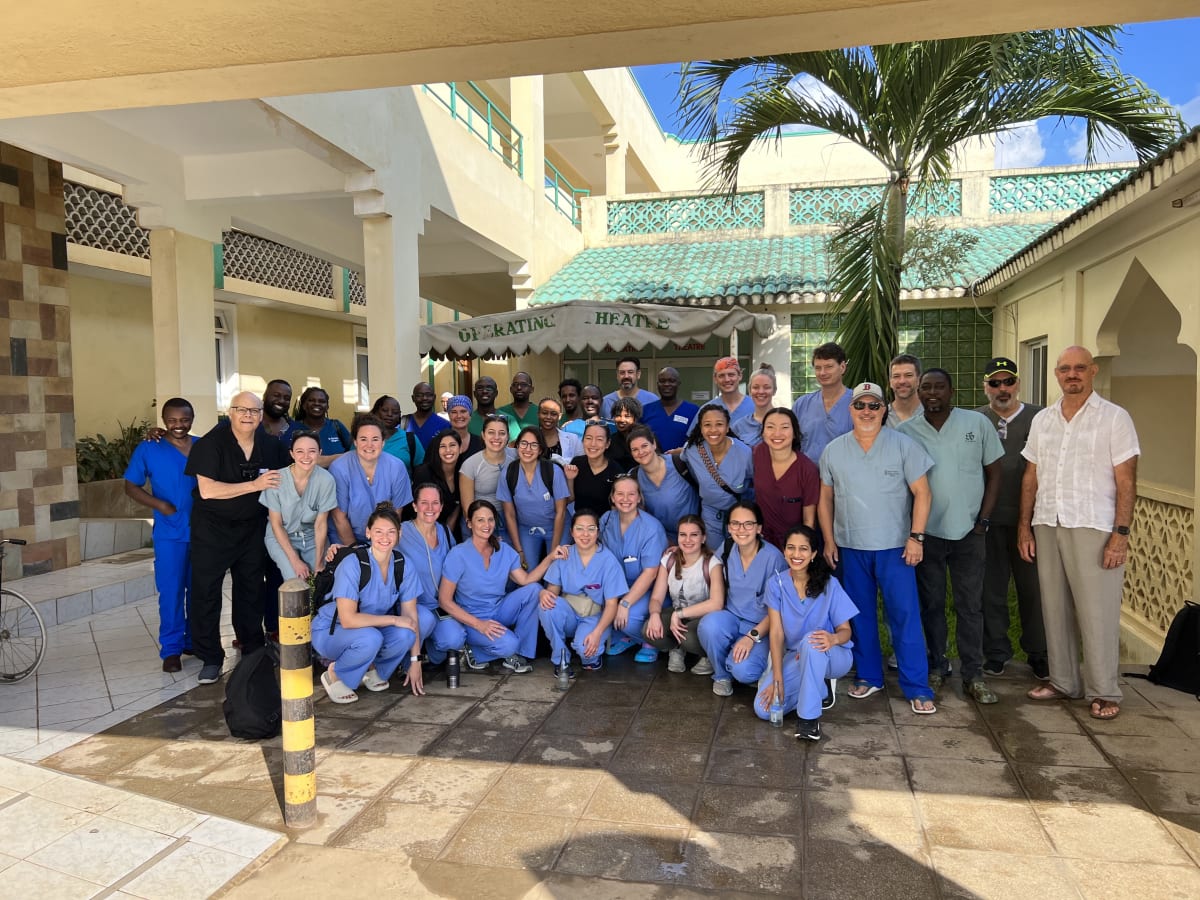Our plan for this medical mission trip is multifaceted and all centered around otolaryngologic care. One aspect of the medical mission trip will be to provide head and neck oncological care to patients with various head and neck pathologies and teach local surgeons to perform these surgeries. This will not only provide important care to local people but will ideally teach local surgeons the techniques needed to continue these surgeries after the completion of the trip. The second aspect of this project will be to perform hearing screenings for school-aged children in the community. There is a high burden of hearing loss world-wide, and particularly in Kenya and some with reversible causes, thus our goal is to perform hearing screenings to identify at risk children and connect them with appropriate follow-up for management. We will also take this time to treat common ear-related pathologies as they are identified. The final portion of the project is to teach community health workers problems through modules and in person teaching sessions how to identify common otolaryngological problems that they can then refer for further care. In summary, this project aims to reduce the burden of otolaryngological problems among the Kenyan population.
We chose Malindi, Kenya as the primary site for this project as our group has been to this community previously and work with its hospitals, schools, and community health workers. Such an established relationship will allow us to expand our reach during our trip and have the greatest impact during our time there. The benefiters of this project include patients with complex head and neck problems, such as cancers and other benign tumors who will receive potentially life-saving surgeries. Others include the children whose hearing will be screened and if diagnosed with hearing loss, will benefit by receiving classroom accommodations and a referral for further diagnostic testing and treatment. Lastly, the wider Kenyan population will benefit as we train more and more community health workers to identify key otolaryngological problems that may otherwise go unnoticed and as we train more local surgeons who can treat these pathologies.
We hope to improve the health of the Kenyan community through screenings and treatment. We hope to do so in a sustainable manner by teaching local surgeons who can continue to provide care after we return home. Additionally, by training community health workers to identify common otolaryngological problems, they will be able to use these skills to identify these problems long after we leave. This mission trip has been ongoing for many years, particularly the portion addressing head and neck oncological problems and more recently, we have added the hearing screening portions of the trip and the portion teaching community health workers. As we continue this annual trip, we look forward to continuing to expand the impact we have on the community and eventually help the local community identify and treat otolaryngological problems independently.












This trip had such a tremendous impact on everyone involved. Through the mission, we were able to provide important care to patients through surgeries, hearing screenings, bedside procedures, and clinic visits. Many of the patients we saw had disfiguring problems that made it difficult for them to live normal lives and we were able to improve their quality of life through the care we provided. Some patients also had cancer and we were able to provide them with lifesaving care through our surgeries. Moreover, we were able to perform hearing screenings on a number of children and provide referrals for further care for those who needed it. Throughout the trip, we also taught Kenyan residents and surgeons how to perform each surgery we did. The education we provided will have a lasting impact as it will allow them to continue to treat patients well after we are going. We also trained community health workers to identify common otolaryngological problems through a short course. This not only helped them learn the skills to identify these problems long after we leave, but will benefit the wide population whom they will be able to treat. Finally, everyone who came to the mission was able to learn how to provide care in a low resource setting and see the benefits of providing this type of care which will hopefully persuade them to continue to similar missions in the future.